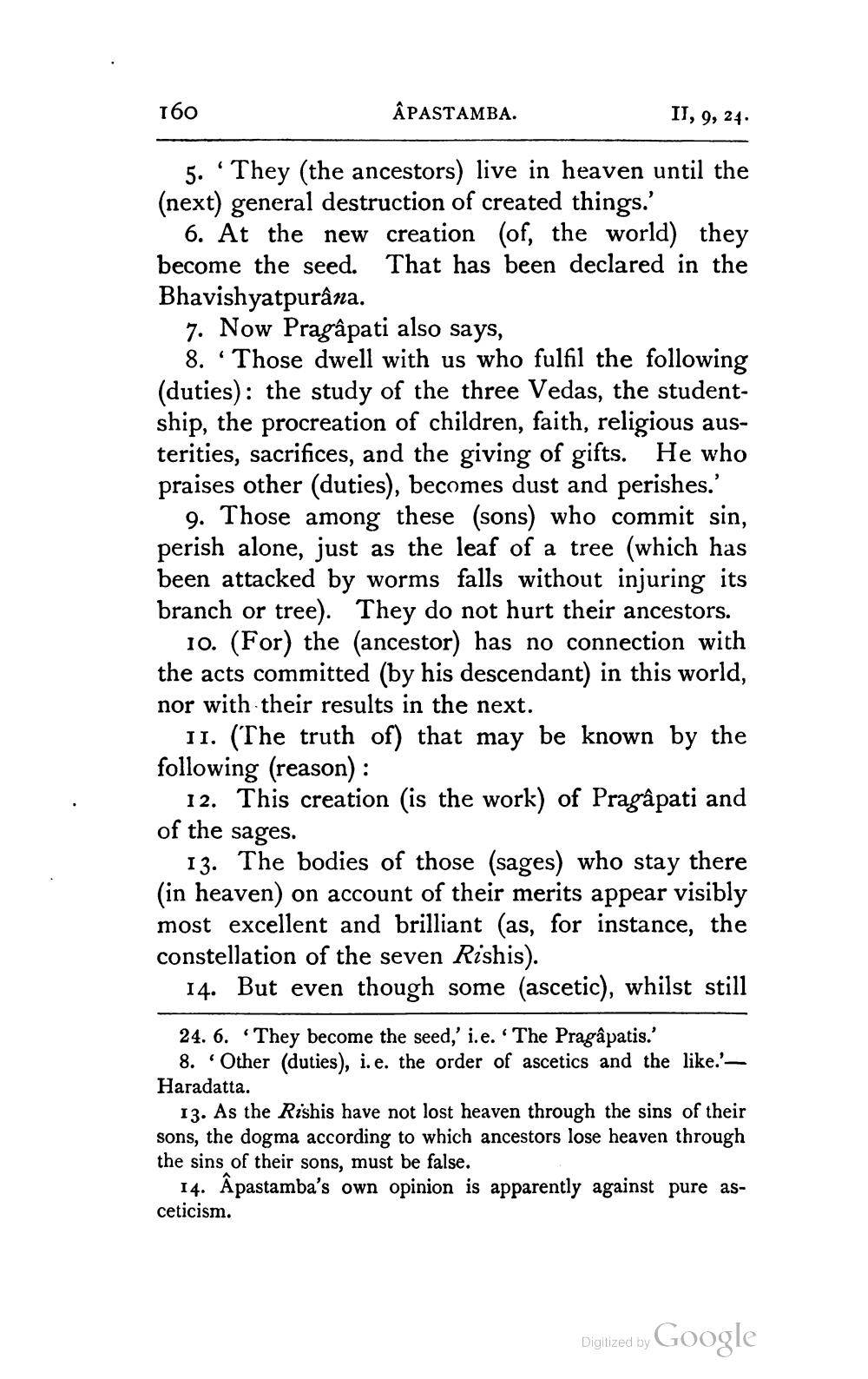________________
160
ÂPASTAMBA.
II, 9, 24.
5. “They (the ancestors) live in heaven until the (next) general destruction of created things.'
6. At the new creation (of, the world) they become the seed. That has been declared in the Bhavishyatpurâna.
7. Now Pragâpati also says,
8. “Those dwell with us who fulfil the following (duties): the study of the three Vedas, the studentship, the procreation of children, faith, religious austerities, sacrifices, and the giving of gifts. He who praises other (duties), becomes dust and perishes.'
9. Those among these (sons) who commit sin, perish alone, just as the leaf of a tree (which has been attacked by worms falls without injuring its branch or tree). They do not hurt their ancestors.
10. (For) the (ancestor) has no connection with the acts committed (by his descendant) in this world, nor with their results in the next.
II. (The truth of) that may be known by the following (reason) :
12. This creation (is the work) of Pragâpati and of the sages.
13. The bodies of those (sages) who stay there (in heaven) on account of their merits appear visibly most excellent and brilliant (as, for instance, the constellation of the seven Rishis).
14. But even though some (ascetic), whilst still
24. 6. They become the seed,' i.e. 'The Pragâ patis.'
8. Other (duties), i.e. the order of ascetics and the like.' - Haradatta.
13. As the Rishis have not lost heaven through the sins of their sons, the dogma according to which ancestors lose heaven through the sins of their sons, must be false.
14. Âpastamba's own opinion is apparently against pure asceticism.
Digitized by Google




